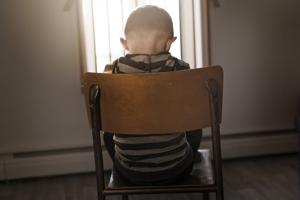Oklahoma child advocates fear decreased abuse reporting is leaving more children vulnerable

(The Center Square) – Despite Oklahoma seeing a decrease in rates of child abuse and neglect reports during the coronavirus pandemic, child advocates fear that reality reveals a much bleaker scene than meets the eye.
“There’s been a significant drop in the reporting for child abuse, child neglect, especially here in the state of Oklahoma,” Joe Dorman, chief executive officer of Oklahoma Institute for Child Advocacy, told The Center Square. “And we know that is a result of kids not being around those adults who would report these cases for investigation.”
The number of criminal charges relating to child abuse fell 25% short of its projection from the spring of 2020, according to the Tulsa World.
Dorman said the school closures, as well as kids missing out on other activities such as church and youth sports, are also contributing to the decrease in the number of reports.
Professionals who would normally intervene in these situations have a much harder job when interaction is limited, Dr. Jane Silovsky, director of the Center on Child Abuse and Neglect at University of Oklahoma Health Sciences Center, told The Center Square.
“They are then less able to connect families to supports that can prevent worsening of situations,” Silovsky said. “Also, these professionals are not able to screen for suspected child abuse and neglect. The child abuse reports that have come through are much more severe. This does not mean that child abuse and neglect is not occurring, but rather it is not being recognized and reported.”
Silovsky said several factors are included in the possibility of an increase in unreported abuse or neglect cases. Pressures on normally well-balanced parents due to the pandemic include things like having to choose between risking exposure by going to work or staying home and not bringing in income, having to be teacher and health care provider for the family while still working, not having support from school or the health care industry to raise special-needs children, and not having the proper technology to do work or school at home.
“Less reporting means there’s more abuse going on as these kids are around abusers more hours in the day,” Dorman said. “With tensions running high because of COVID-19, with loss of employment, with other factors, we know that’s in turn increasing issues of abuse and neglect.”
Silovsky said the state can help these vulnerable children by fostering the resilience and well-being of families.
“We support parents’ ability to provide for their family, treat them with respect, give healthy choices for entertainment, access to needed services (health, mental health), education and child care, social connectedness, stable affordable housing, healthy food options,” she said.
Disclaimer: This content is distributed by The Center Square

